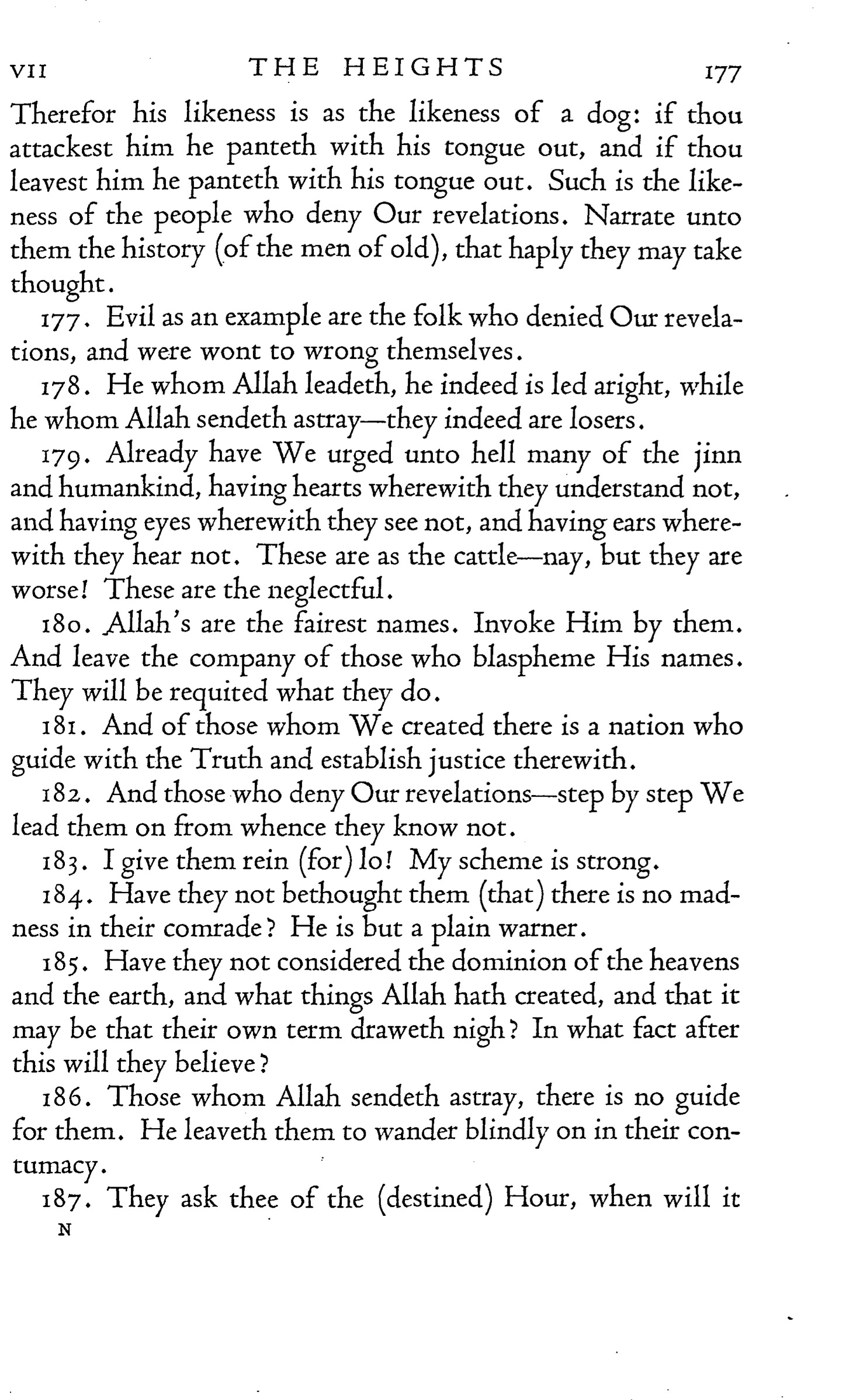Marmaduke Pickthall, The Meaning of The Glorious Koran. An Explanatory Translation (1930)
Therefor his likeness is as the likeness of a dog: if thou attackest him he panteth with his tongue out, and if thou leavest him he panteth with his tongue out. Such is the likeness of the people who deny Our revelations. Narrate unto them the history (of the men of old), that haply they may take thought.
177. Evil as an example are the folk who denied Our revelations, and were wont to wrong themselves.
178. He whom Allah leadeth, he indeed is led aright, while he whom Allah sendeth astray — they indeed are losers.
179. Already have We urged unto hell many of the jinn and humankind, having hearts wherewith they understand not, and having eyes wherewith they see not, and having ears wherewith they hear not. These are as the cattle — nay, but they are worse! These are the neglectful.
180. Allah’s are the fairest names. Invoke Him by them. And leave the company of those who blaspheme His names. They will be requited what they do.
181. And of those whom We created there is a nation who guide with the Truth and establish justice therewith.
182. And those who deny Our revelations — step by step We lead them on from whence they know not.
183. I give them rein (for) lo! My scheme is strong.
184. Have they not bethought them (that) there is no madness in their comrade? He is but a plain warner.
185. Have they not considered the dominion of the heavens and the earth, and what things Allah hath created, and that it may be that their own term draweth nigh? In what fact after this will they believe?
186. Those whom Allah sendeth astray, there is no guide for them. He leaveth them to wander blindly on in their contumacy.
187. They ask thee of the (destined) Hour, when will it
